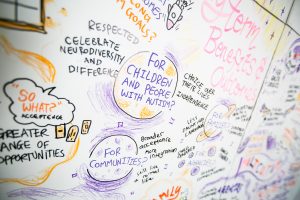‘You are labelled by your children’s disability’
A community-based, participatory study of stigma among Somali parents of children with autism living in the United Kingdom, Lucy Ellen Selman, Fiona Fox, Nura Aabe, Katrina Turner, Dheeraj Rai & Sabi Redwood
Related content
Understanding the needs of Somali families affected by autism in Bristol
Reflecting the experiences of Somali families affected by autism through film
Raising the profile of autism in the Somali community
"There is no word for autism in the Somali language", Nura Aabe, Autism Independence Founder.
Overcoming Barriers: Autism in the Somali Community
Video by Autism Independence and NIHR
Focus on stigma for second paper published from Somali autism project
Demystifying autism in the Somali community through films and factsheets
By Carissa Wong, Fourth Year, PhD Cancer Immunology
